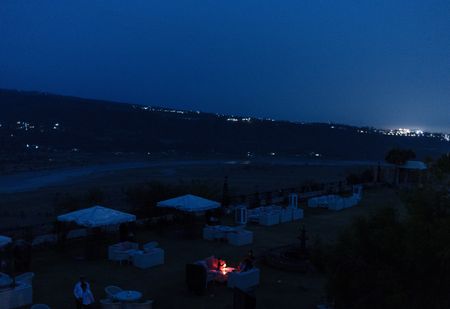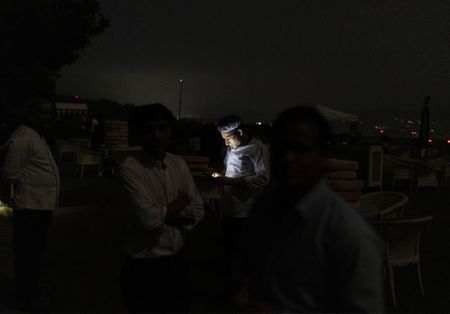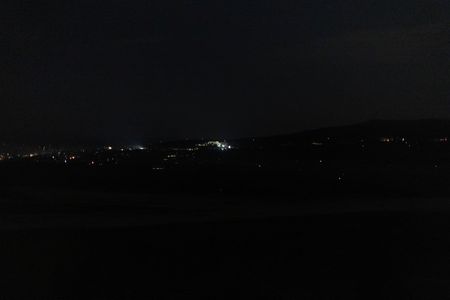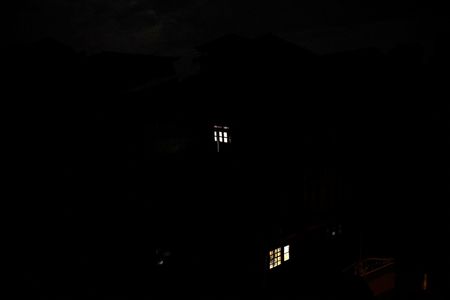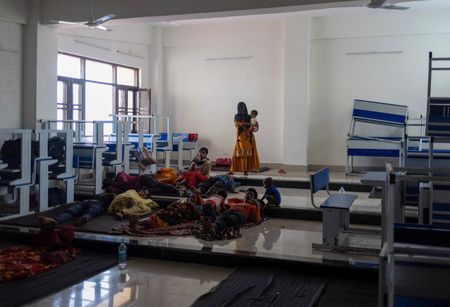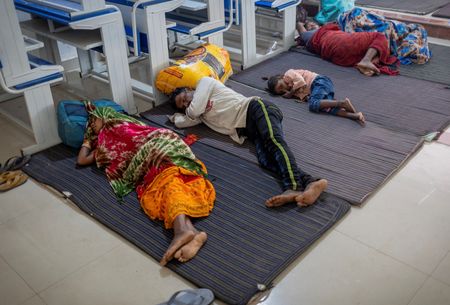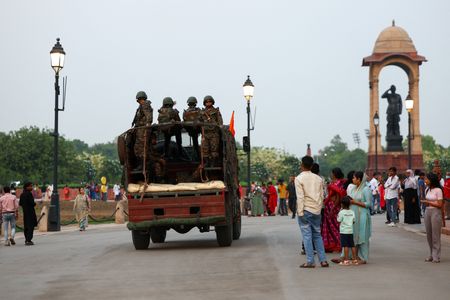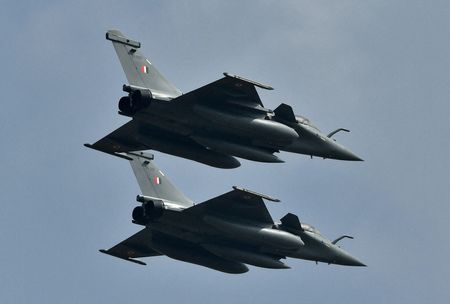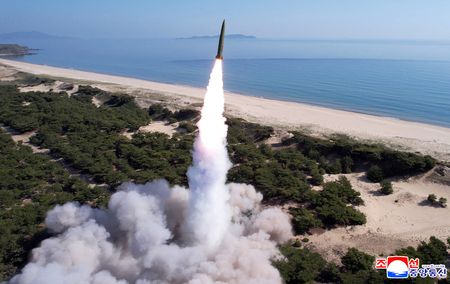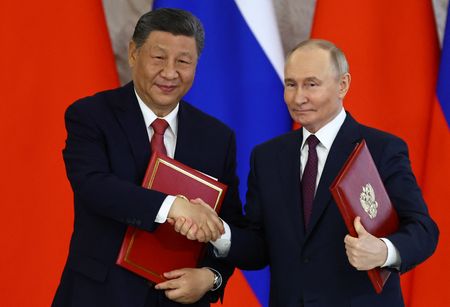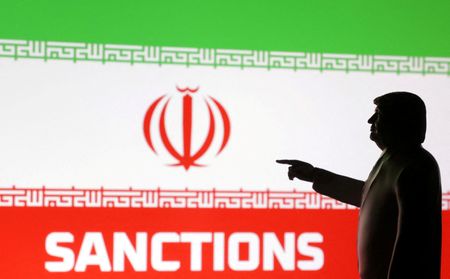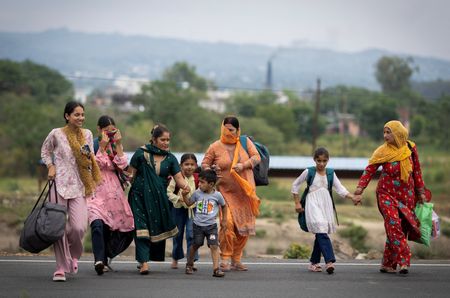By Aftab Ahmed, Adnan Abidi and Saeed Shah
JAMMU, India/ISLAMABAD (Reuters) -Blasts rang out across the Indian city of Jammu late on Thursday during what the government said was a Pakistani drone and missile attack on military stations around the Kashmir region on the second day of clashes between the nuclear-armed neighbours.
Sirens sounded and red flashes and projectiles erupted in the night sky above Jammu for about 2-1/2 hours, a Reuters journalist said, in what appeared to be an escalation in the countries’ worst confrontation in more than two decades.
Two days of fighting have killed nearly four dozen people.
“Military stations at Jammu, Pathankot & Udhampur were targeted by Pakistani-origin drones and missiles along the international border in J&K today,” India’s Ministry of Defence said on X, citing places in and near the federal territory of Jammu and Kashmir.
“The threats were swiftly neutralised …. No casualties or material losses were reported.”
Indian TV channels also showed flares and flashes in the sky above Jaisalmer city in Rajasthan state, which shares a border with the southern Pakistani province of Sindh.
In a statement, Islamabad denied attacking Pathankot in India’s Punjab state, Srinagar in the Kashmir Valley and Jaisalmer and said the accusations were “entirely unfounded, politically motivated, and part of a reckless propaganda campaign aimed at maligning Pakistan”.
Pakistan’s Ministry of Foreign Affairs said the country would respond to any escalation “with full resolve and determination to safeguard Pakistan’s sovereignty and territorial integrity.”
Electricity in Jammu was slowly being restored after a blackout during the attack, a Reuters journalist said.
Eight missiles, fired from Pakistan at the Jammu region towns of Satwari, Samba, Ranbir Singh Pura and Arnia, were intercepted by air defence units, added an Indian military source who asked not to be named.
They were part of a wider attack, the source added.
Pakistan’s Defence Minister Khawaja Muhammad Asif earlier said further retaliation was “increasingly certain” after both countries accused each other of launching drone attacks.
World powers from the U.S. to Russia and China have called for calm in one of the world’s most dangerous and populated nuclear flashpoint regions. The U.S. Consulate General in Pakistan’s Lahore ordered staff to shelter in place.
U.S. Secretary of State Marco Rubio called for de-escalation in separate calls with Indian Foreign Minister Subrahmanyam Jaishankar and Pakistani Prime Minister Shehbaz Sharif on Thursday, the State Department said.
The relationship between India and Pakistan has been fraught with tension since they gained independence from colonial Britain in 1947. The countries have fought three wars, two of them over Kashmir, and clashed many times.
The neighbours, which both claim Kashmir in full and rule over parts of it, separately acquired nuclear weapons in the 1990s.
DRONES, MISSILES, AIR DEFENCES
In the latest confrontations, India said it hit nine “terrorist infrastructure” sites in Pakistan on Wednesday in retaliation for what it says was a deadly Islamabad-backed attack in Indian Kashmir on April 22.
Pakistan says it was not involved and denied that any of the sites hit by India were militant bases. It said it shot down five Indian aircraft on Wednesday, a report the Indian embassy in Beijing dismissed as “misinformation”.
Pakistan’s military said earlier on Thursday it shot down 29 drones from India at multiple locations including the two largest cities of Karachi and Lahore and the garrison city of Rawalpindi, home to the army’s headquarters.
The Indian defence ministry said Pakistan attempted to engage a number of military targets in northern and western India from Wednesday night into Thursday morning and they were “neutralised” by Indian air defence systems.
In response, Indian forces targeted air defence radars and systems at a number of locations in Pakistan on Thursday, the ministry said.
Before trading ended, both countries saw their stocks, bonds and currencies decline, and Pakistan’s benchmark share index closed down 5.9%.
Local media reported panic buying in some cities in the Indian state of Punjab, which shares a border with Pakistan, as people hoarded essentials.
(Reporting by Mubasher Bukhari in Lahore, Saurabh Sharma in Amritsar, Shivam Patel, Tanvi Mehta, Surbhi Misra in New Delhi, Saeed Shah, Charlotte Greenfield, Gibran Peshimam and Asif Shahzad in Islamabad, Ariba Shahid in Karachi, Fayaz Bukhari in Srinagar; Additional reporting by Shakeel Ahmad in Bengaluru and Colleen Howe in Beijing; Writing by Sakshi Dayal, YP Rajesh and Andrew Heavens; Editing by Christian Schmollinger, Raju Gopalakrishnan, Andrew Heavens, William Maclean, Alexandra Hudson and Cynthia Osterman)

